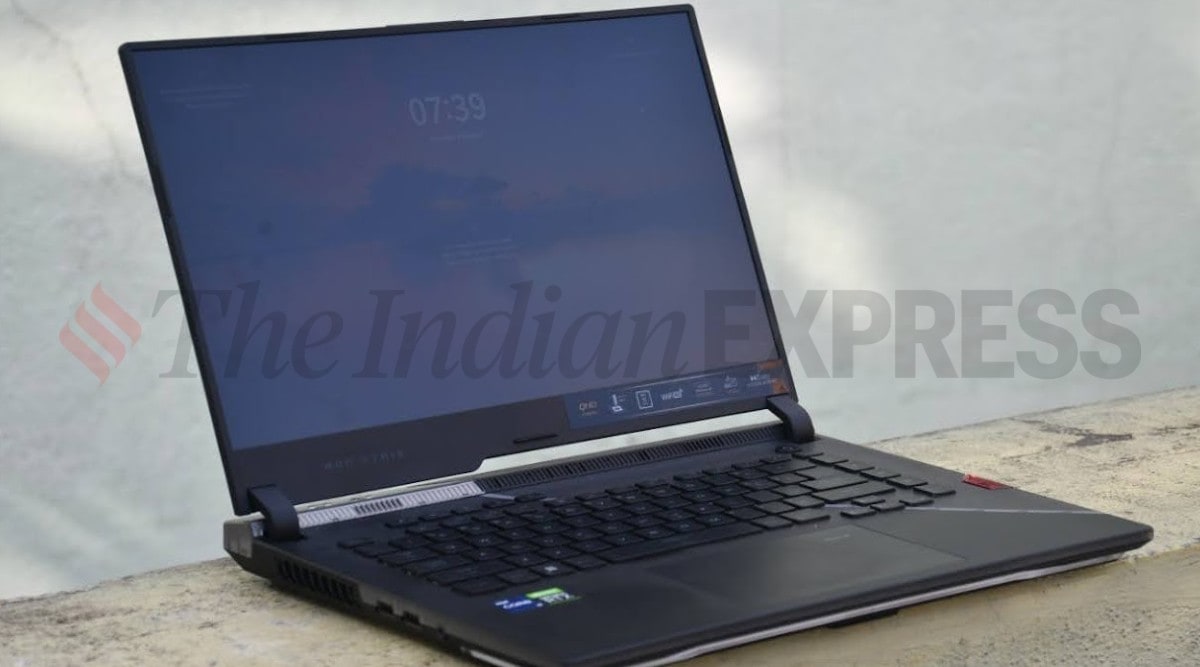Is your PC slow? Try these tricks to regain its speed and power
If your PC showing the signs of ageing, here are four ways to make it fast.
 Most modern Windows PCs support storage and RAM upgrade (Image credit: Vivek Umashankar/Indian Express)
Most modern Windows PCs support storage and RAM upgrade (Image credit: Vivek Umashankar/Indian Express) As components get old, most electronic gadgets, including PCs, will start to show signs of ageing. This is why even high-end computers purchased just a few years ago may struggle with basic tasks like web browsing, video streaming, and content creation.
In addition to ageing hardware, there will also be various underlying issues that can slow down a PC. These include slower storage devices, limited memory, and an excess amount of apps and services running in the background with startup permission.
Here are some of the easiest ways to make your ageing PC fast again:
 Limit the number of apps that has startup permission (Express Photo)
Limit the number of apps that has startup permission (Express Photo)
Remove services from startup apps
When you install a new app on a Windows PC, it often has permission to run at startup, automatically open and starts running in the background as soon as you turn on your PC. This will consume unnecessary computational power and by limiting it to select apps, you can make your PC slightly faster.
On a PC running Windows 11, search for “startup apps” and disable apps that you don’t frequently use to reduce stress on the CPU. Additionally, look for apps labelled “high impact” or “medium impact” as they use a significant amount of computational power and can slow down your PC.
 Uninstall apps that you might not use often (Express Photo)
Uninstall apps that you might not use often (Express Photo)
Uninstall apps
By default, a Windows PC comes with many third-party apps. While some of these apps may be useful to certain users, many of them only take up valuable space on your PC. By uninstalling these apps, you can free up storage and improve PC performance.
Go to Settings > Apps > Installed apps and remove any services you don’t need. However, ensure that you do not uninstall any system-specific apps, as this could cause your PC to go into a boot loop.
Adjust power mode
If you have a PC running Windows 11, ensure that the power mode is set to “best performance.” Modern laptops often default to “best power efficiency” or “balanced” mode, which prioritises power consumption over performance. Do note that, in the best performance mode, battery life will take a toll.
Go to Settings > System > Power & Battery > Power Mode and select “best performance” to maximise computing power on your Windows 11 laptop.
 Set power mode to best performance to get most out of your PC (Express Photo)
Set power mode to best performance to get most out of your PC (Express Photo)
Upgrade storage and RAM
If you’ve followed all the previous steps and your PC is still slow, consider upgrading your hardware, especially if your PC is four to five years old. Many PCs from that period come with an HDD, which slows down over time due to increased load. Upgrading to an SSD (SATA or NVMe) can significantly improve OS booting and app loading times.
Similarly, if your PC becomes slower when you open multiple apps and services, it may need more RAM. Even a basic PC running Windows 11 should have at least 8 GB of RAM. Check your PC’s manual for information on RAM type and compatibility, and consider upgrading to 8 or even 16 GB of RAM.
If this also fails to fix your PC, it’s definitely time to upgrade to a new device. Depending on the budget, you can choose a computer that can handle the workload.







